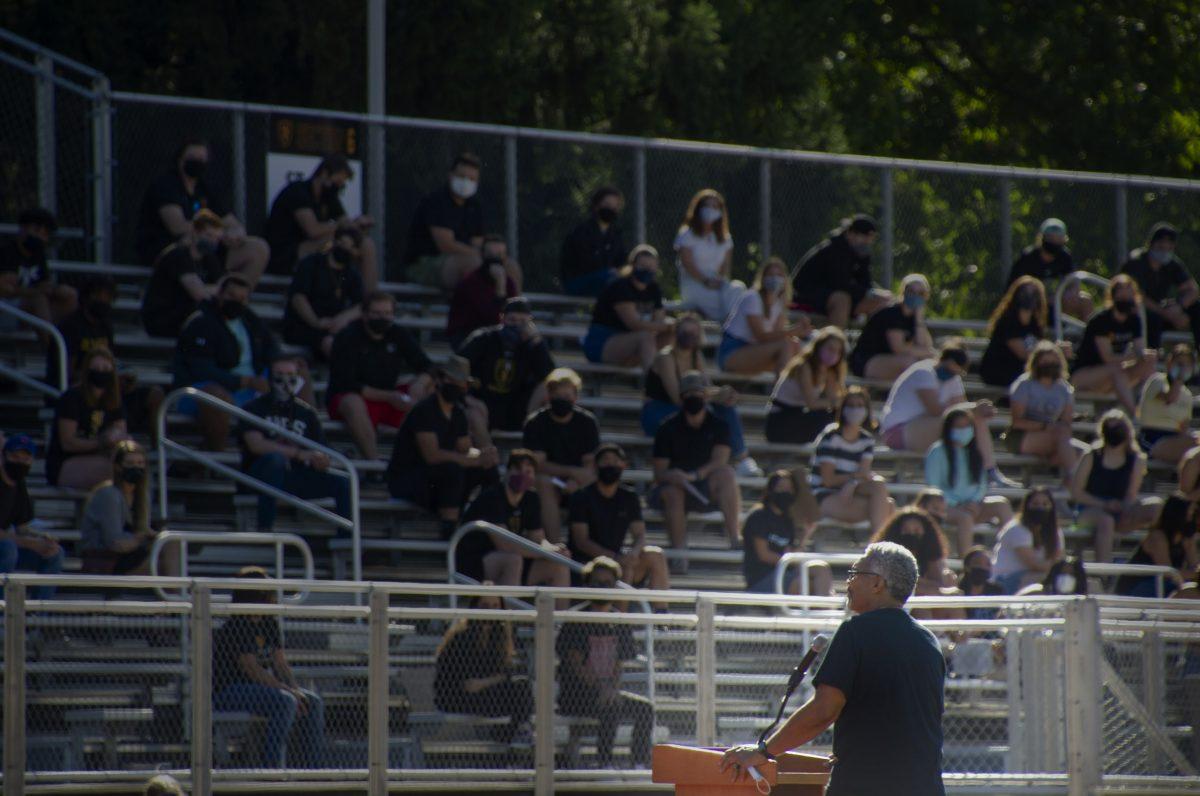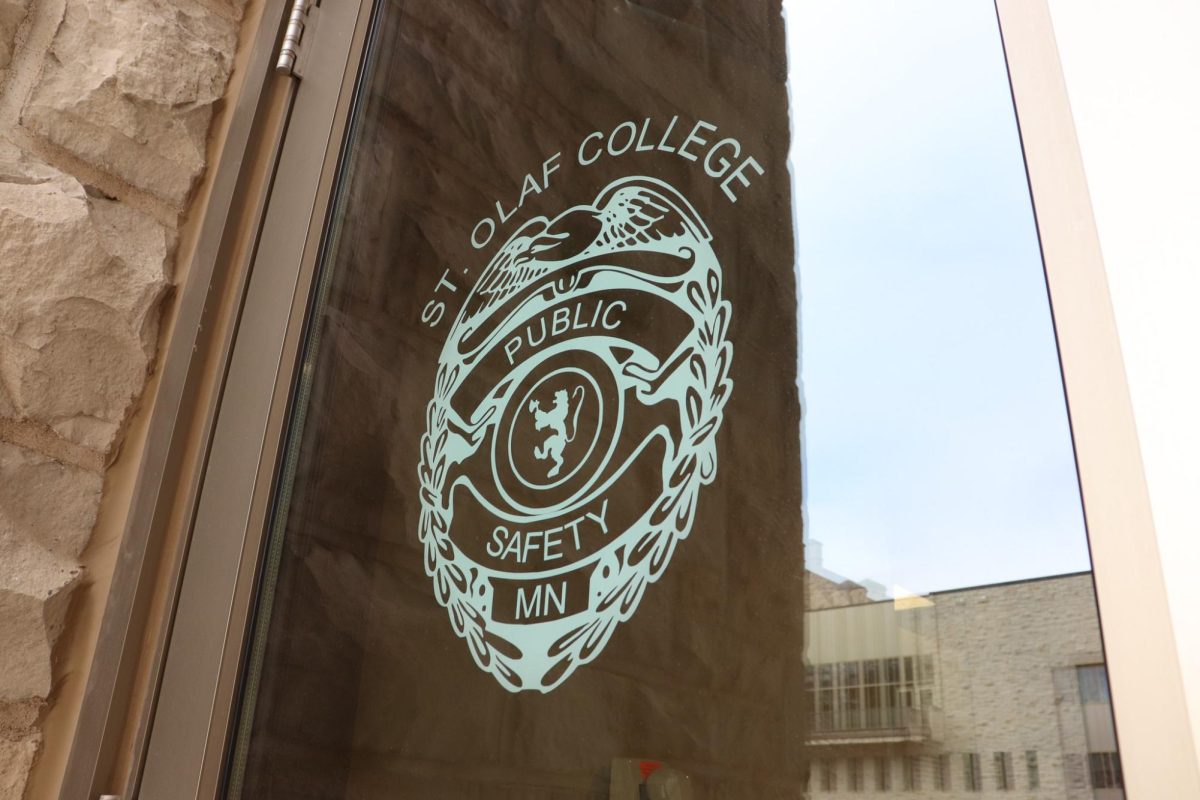Vice President for Equity and Inclusion, Bruce King, will leave his position on Feb. 28, drawing to a close his career at the College which spanned over a decade and which saw King assume a leadership role in St. Olaf’s efforts toward diversity, equity and inclusion over the last year.
The ongoing coronavirus pandemic and the killing of George Floyd offered stark reminders to King that “nothing is promised,” reminders that encouraged him to reflect on what was most important. This reflection led to his resignation at St. Olaf sooner rather than later.
“It was important to me to take agency for myself,” King said. “I have lived my entire life on an academic calendar, it was my call to make and I made it.”
He plans to move back to his hometown of Chicago in an effort to connect with his family and partner while fostering a more sustainable life. Having spent the majority of his career following an academic calendar, King decided to leave halfway through the year to better serve these important areas.
King has worked in the world of diversity, equity and inclusion (DEI) his entire professional life. These vocational efforts toward DEI reflect the value he places on higher education, King said.
However, DEI is an area of work that can be difficult for BIPOC people, as these efforts are intersectional in both personal and professional environments. Battling burnout, King hopes to reconnect with what made him so passionate about higher education and DEI work in the first place.
“I want to be more connected to the reason why I went into higher education,” King said. “ If it’s not changing the lives of people who need education the most, then I’ve lost my focus.”
Over the last 13 years at St. Olaf, King has overseen the recruitment of BIPOC students and faculty, citing a 15 percent increase of faculty of color and an 18 percent increase of BIPOC students.
While King is proud to have seen the increase of BIPOC individuals at St. Olaf, he grieves for the students and faculty who have been disappointed and hurt by their experience at the College.
“I wish that every person of color that I helped recruit to the College would have found the life that they would’ve wanted at the College,” King said. “ I do grieve for the people I told and who I encouraged to bring their lives to the College and it didn’t work out.”
The search for a new Vice President of Equity and Inclusion will continue over the next semester, a transition for which King is excited and believes is necessary for the College’s continued work towards equity, inclusion and antiracism.
“I think St. Olaf needs new leadership in diversity, equity and inclusion and it’s time for someone to come in with a fresh set of eyes, energy and a new viewpoint,” King said.
During the transition and hiring process, Director of the Taylor Center for Equity and Inclusion, María Pabón Gautier, will serve as interim Vice President for Equity and Inclusion while maintaining her position at the Taylor Center.
Pabón accepted the interim position after collaborating with her team at the Taylor Center to ensure that her team members feel confident about her next step. Pabón will continue to oversee the Taylor Center while focusing on the duties of her new role. The addition of Guadalupe Romero ’20 as an administrative intern will help with day to day activities.
Pabón hopes to strengthen communication and create visible action and change over her interim period.
“There is so much that has been going on that we have had to react to in this work, so how do we plan so that rather than reacting so often we can prevent and start building that community and that work Bruce started around equity and inclusion?” Pabón said. “My hope for this semester is that our community can see action.”
Following the resignation of several BIPOC faculty and staff members who cited racism and discrimination as movtivations for leaving, Pabón wants to stay informed of the needs of BIPOC faculty, staff and students.
Pabón will stay in her Taylor Center office rather than moving to Tomson Hall, a promise she made to students. “Staying in the Taylor Center will help her remain connected and accessible to the community,” Pabón said.
“As a staff member myself, I want to stay very connected to the experiences of our staff from marginalized identities and underrepresented backgrounds,” said Pabón. “So, for me, I want to focus this year on understanding the experiences of underrepresented staff, staff of color and staff in different areas.”






